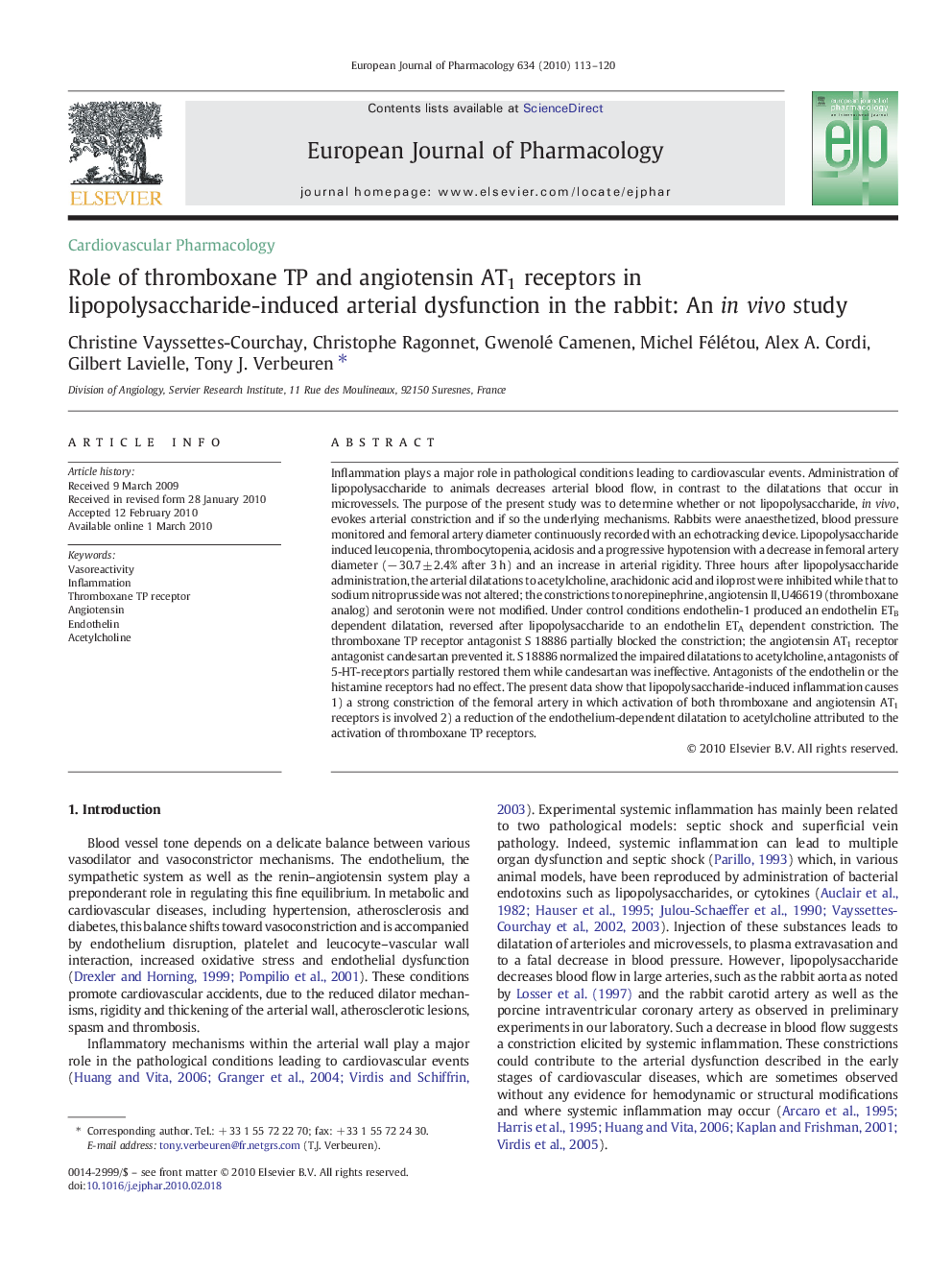| Article ID | Journal | Published Year | Pages | File Type |
|---|---|---|---|---|
| 2533565 | European Journal of Pharmacology | 2010 | 8 Pages |
Inflammation plays a major role in pathological conditions leading to cardiovascular events. Administration of lipopolysaccharide to animals decreases arterial blood flow, in contrast to the dilatations that occur in microvessels. The purpose of the present study was to determine whether or not lipopolysaccharide, in vivo, evokes arterial constriction and if so the underlying mechanisms. Rabbits were anaesthetized, blood pressure monitored and femoral artery diameter continuously recorded with an echotracking device. Lipopolysaccharide induced leucopenia, thrombocytopenia, acidosis and a progressive hypotension with a decrease in femoral artery diameter (− 30.7 ± 2.4% after 3 h) and an increase in arterial rigidity. Three hours after lipopolysaccharide administration, the arterial dilatations to acetylcholine, arachidonic acid and iloprost were inhibited while that to sodium nitroprusside was not altered; the constrictions to norepinephrine, angiotensin II, U46619 (thromboxane analog) and serotonin were not modified. Under control conditions endothelin-1 produced an endothelin ETB dependent dilatation, reversed after lipopolysaccharide to an endothelin ETA dependent constriction. The thromboxane TP receptor antagonist S 18886 partially blocked the constriction; the angiotensin AT1 receptor antagonist candesartan prevented it. S 18886 normalized the impaired dilatations to acetylcholine, antagonists of 5-HT-receptors partially restored them while candesartan was ineffective. Antagonists of the endothelin or the histamine receptors had no effect. The present data show that lipopolysaccharide-induced inflammation causes 1) a strong constriction of the femoral artery in which activation of both thromboxane and angiotensin AT1 receptors is involved 2) a reduction of the endothelium-dependent dilatation to acetylcholine attributed to the activation of thromboxane TP receptors.
